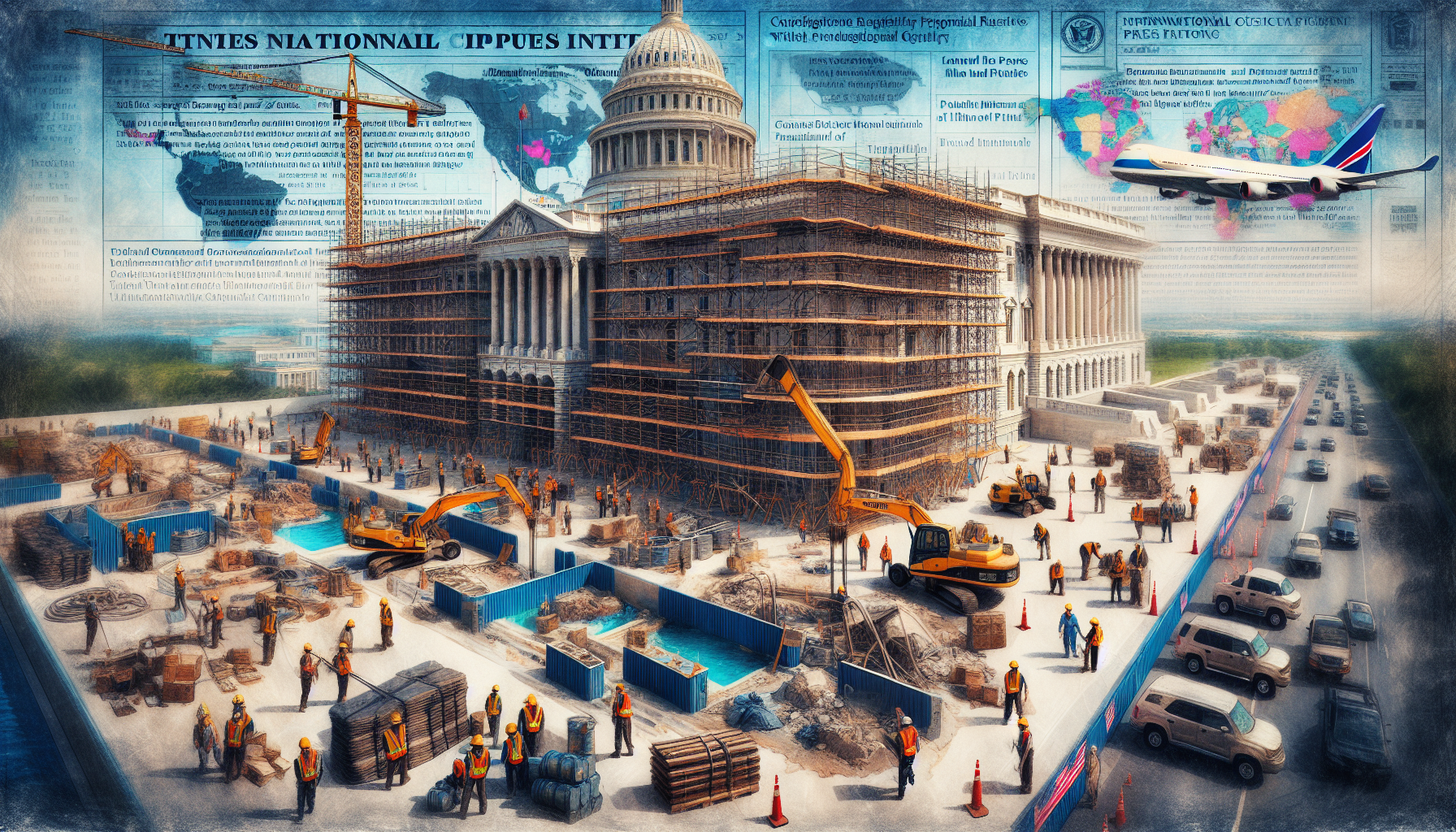On October 26, NPR’s Ayesha Rascoe and Mara Liasson discussed President Trump’s Asia trip, the demolition of the White House’s East Wing to make way for a new ballroom, fresh U.S. sanctions on major Russian oil companies, intensifying redistricting fights, and a federal shutdown that has stretched nearly four weeks.
NPR’s five‑minute politics chat, broadcast October 26, framed a turbulent political moment: a president abroad seeking trade leverage while controversies mount at home. Rascoe opened by noting that Trump is in Asia this week, with a planned face‑to‑face with China’s Xi Jinping on the sidelines of APEC in South Korea, while domestic storms—from a high‑profile White House construction project to sanctions, map‑drawing and a grinding shutdown—continue to gather.
White House changes
Photographs published last week show the East Wing largely demolished as the administration clears space for a roughly 90,000‑square‑foot ballroom. Trump has defended the project as privately funded and said it will be connected to the main building by a glass bridge. He has publicly recounted being told he could begin work without traditional approvals, remarks that fueled criticism from preservationists and questions about oversight. The White House and allies say the effort modernizes the complex; watchdogs counter that external projects typically receive advance review by the National Capital Planning Commission. Independent reporting places the project’s price tag near $300 million and says large companies have been courted as donors.
Asia trip and U.S.–China talks
The conversation shifted to Trump’s Asia itinerary: meetings in Malaysia and Japan before South Korea hosts APEC leaders at week’s end. The White House has previewed a Trump–Xi meeting, with trade and technology high on the agenda. Treasury Secretary Scott Bessent said Sunday that negotiators have a framework to avert the administration’s threatened 100% tariffs in exchange for steps including a one‑year delay in China’s new rare‑earth export licensing regime and increased Chinese purchases of U.S. soybeans—after months in which Beijing sharply curtailed U.S. soybean buys. Chinese statements have not publicly confirmed a rare‑earths delay, and Beijing tightened such export controls earlier in October, so details will bear watching during APEC week. U.S. officials have not announced any relaxation of export controls on advanced chips.
Taiwan policy has also drawn scrutiny. Reporting this fall showed the administration paused more than $400 million in planned military aid to Taipei, even as the State Department earlier removed a longstanding public phrase that the United States “does not support” Taiwan independence. Any adjustments tied to U.S.–China bargaining remain speculative ahead of leader‑level talks.
Russia sanctions
Rascoe and Liasson also noted fresh action toward Moscow. Late last week, the administration imposed full blocking sanctions on Rosneft and Lukoil, Russia’s two largest oil companies—Washington’s most sweeping Russia‑related designations of Trump’s second term. Legal and policy analyses describe the move as a significant escalation that could disrupt Russian revenues, though its market impact will depend on enforcement and whether major buyers scale back. Trump has simultaneously signaled he will not send Tomahawk missiles to Ukraine, after earlier suggesting he was weighing long‑range options.
Redistricting ramps up
Domestically, the redistricting arms race has accelerated. In Texas, Republicans—strongly encouraged by Trump—advanced a mid‑decade congressional map designed to net up to five additional GOP seats; Democrats mounted walkouts and vowed court challenges. Missouri followed with a Trump‑backed plan that targets a Democratic‑held Kansas City district. Democrats, for their part, are pursuing a counter in California via a November ballot measure that would temporarily replace the commission‑drawn map with a legislature‑drawn plan expected to add several Democratic seats if approved. And in Virginia, Democrats who control the General Assembly have called lawmakers back to Richmond on Monday, Oct. 27, to keep redistricting on the table for 2026—though changing the state’s commission‑based system would require a constitutional amendment and voter approval. In Illinois and Maryland, Democrats have openly debated—but not enacted—mid‑decade changes. Analysts note that Republicans retain an overall edge in map fights because they control more state legislatures, and geography tends to concentrate Democratic voters in urban districts.
Shutdown politics
The chat closed on the shutdown, now in its 26th day—making it the second‑longest on record. Public opinion surveys to date generally show more Americans blaming Trump and congressional Republicans than Democrats for the funding lapse, though partisans tend to fault the other side and some polls find blame diffused. With Republicans insisting they will negotiate on Democrats’ health‑subsidy demands only after government reopens—and Democrats urging immediate talks—there is little sign of a congressional deal‑making center. Whether APEC‑week diplomacy distracts or catalyzes compromise at home may become clear only after the president returns from Asia.

